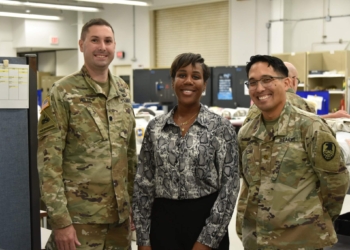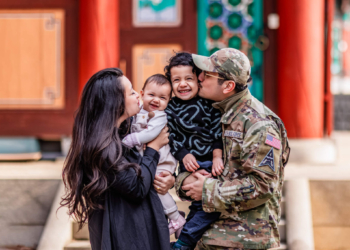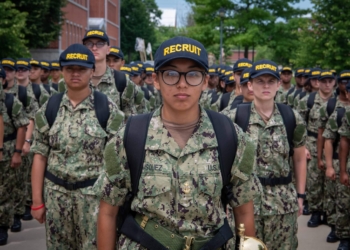When Army Command Sgt. Maj. Jason Copeland was 20, he told his parents he would return to college.
Nineteen years later, with a wife, three children and a flourishing military career, he held in his hands proof of a promise kept – a degree from Excelsior College.
The accredited private school offers more than 40 degree programs, including associate, bachelor’s and master’s.
“We serve primarily adult, non-traditional learners,” Katie Wayan, business development manager at Excelsior College, said. “We’re online, and we have active-duty military who may be out in the field or have other military obligations. Our professors are accommodating and very flexible to make sure students are successful.”
When talking to his parents all those years ago, Copeland was attending college in Virginia. He enjoyed classes but not the cost of tuition.
“I was born and mostly raised in Virginia, but I was an Air Force brat, and I graduated from high school in Texas. Because of that, they charged me out-of-state tuition,” he said.
Prior to his sophomore year, Copeland learned about the Army’s delayed entry program. A recruiter said: Take out a student loan. Attend basic training in the summer at Fort McClellan, Alabama. Return to Virginia, finish a second year of college and then enlist. His promise of $5,000 prompted Copeland’s “yes.” The sign on bonus would pay off his loan.
Then, life happened, which included moving with the military, deploying and raising children. Over the course of the next few years, Copeland completed more classes.
“I was at the point where the lack of a degree would affect me moving forward,” Copeland said. “The Army was shifting into a place where you needed not only technical expertise, but also the educational aspect.”
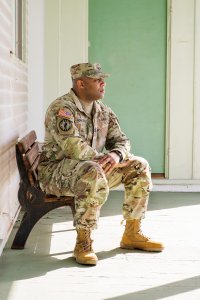
He reflected: Why, as a military police soldier looking to advance, was he studying political science and business and taking classes occasionally? Why not criminal justice and a degree?
Copeland later landed at the Sergeants Major Academy. The nudging feeling grew.
“I met the highest rank that you can go as an enlisted member, and I still hadn’t finished my degree or changed majors,” he said.
He pictured the people around him – his children and younger soldiers looking for a role model, officer counterparts knowing he had expertise and experience, but not the education.
Excelsior College had a presence at Copeland’s post. Friends who worked as education advisors suggested he check them out.
He learned that switching majors was a possibility, and the college accepted transfer credits while awarding credits for military experience. A degree – in about a year and a half with ultimately 14 courses covered by the Army’s tuition assistance – was within his reach.
“If you are in the military, a veteran or a family member, our intention is that you speak with somebody who speaks the same language,” Chris Johnson, director of military and veteran academic advising at Excelsior College, said, “somebody who understands different funding sources, whether it’s tuition assistance or VA benefits, and transfer credits.”
The staff’s informal motto: Leave no credit behind.
Copeland chose criminal justice, and his learning went beyond books.
“I was in discussion panels with professors and other industry leaders,” Copeland said. “I was talking to them about community policing and how you run multiple police stations. It all taught me a lot about how to manage and be a leader.”
As for the juggle of work, school and family, he explained it was easier than he thought it would be.
“The professors were always there to answer questions, whether you reached out via email, text or pigeon carrier. When travel was coming up, they gave me permission to work ahead on assignments,” he said.
In fact, Excelsior College staff is fueled by a ‘whatever it takes’ mentality.
As an example, Amy DeSpirito, assistant director of military and veteran advising, shared how she worked with a student who had post-traumatic stress disorder. He struggled, was dismissed, then submitted an appeal to give it another chance.
“We created a plan,” DeSpirito said. “He sought therapy, and I followed up with him. It was a matter of making sure he had everything he needed as far as support and guidance. He’s doing a lot better. I keep following up. I checked on his grades recently, and he got an A. It’s hard for veterans sometimes, especially later in life, to come back to school. It made me really proud that he put the work in. He’s proud, too.”
Since completing a bachelor’s at Excelsior College, Copeland has earned a master’s in leadership studies and two graduate certificates in executive and high-performance leadership at other schools. He’s working on a doctorate in public policy with a concentration in global leadership. His family of five grew to six, and he’s currently geobaching at Fort Shafter, Hawaii. He’s responsible for installation management at four locations from Alaska to Japan.
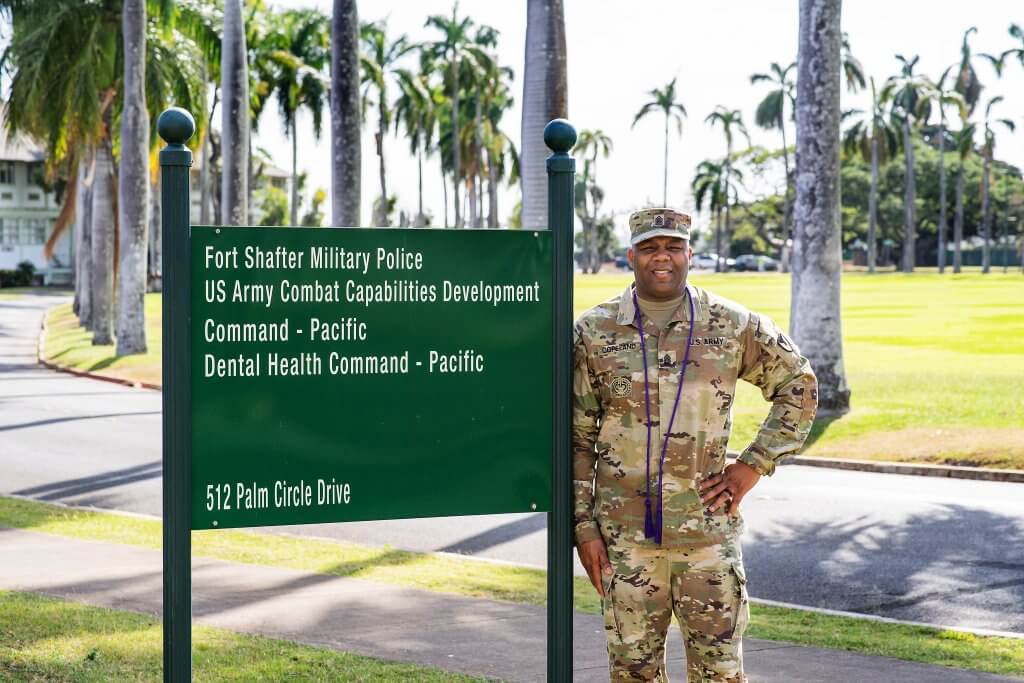
“It’s similar to being a governor. My director and I manage the staff and resources,” Copeland explained. “Whether it be personnel, fire departments, police departments, we oversee it all, to the tune of about $16 billion a year.”
In the coming months, he’s heading back to Texas and heading up an installation there.
“You’re talking about a young kid from Portsmouth, Virginia that was an Air Force brat,” Copeland said, “making it to the highest position that you can possibly reach in installation management. That’s pretty humbling. I went from walking into an education center on an installation to being in charge of an installation.”
Excelsior College has supported more than 72,000 military graduates. To learn more about how you can have a successful degree path, visit https://www.excelsior.edu/military-and-veterans.
Read comments
















